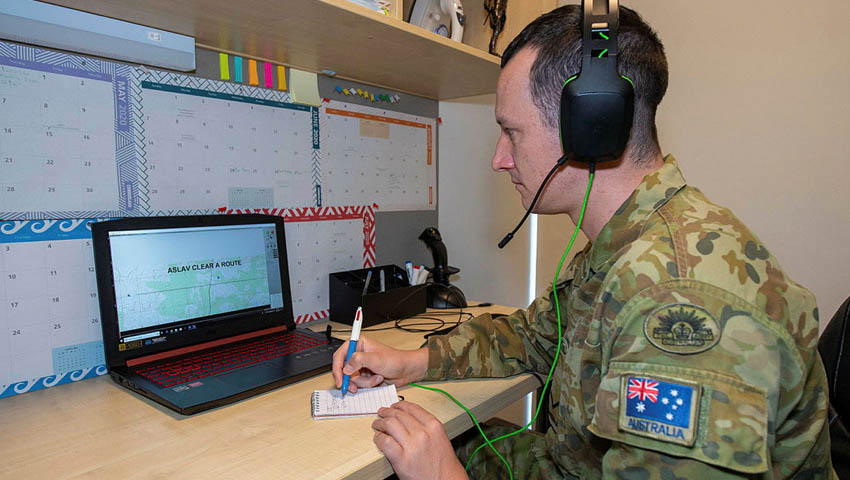The specific and sensitive network capabilities required by the civilian and uniformed Defence workforce makes working from home difficult. In response, DST scientists are working to promote that flexible work practices can increase the productivity and wellbeing of employees and maximise participation in the workforce.
To continue reading the rest of this article, please log in.
Create free account to get unlimited news articles and more!
Dr Melanie Farrier joined DSTG this year with responsibility for gender equity, including managing the implementation of the Science in Australia Gender Equity (SAGE) program. Dr Farrier believes flexible work arrangements are about creating an environment that assists employees to balance their work and home lives through agreed ways of structuring hours of work to enable operational outcomes to be achieved while providing flexibility that supports work/life balance objectives.
“The take-up of flexible work practices is particularly low among our male colleagues. We’re hoping that by sharing more case studies, we’ll inspire an increase, with flow-on benefits to individuals, teams and our organisation,” Dr Farrier explained.
While the main model of flexible arrangements he sees in place are the common ones available to all of us, a different example is found in a colleague and his partner who have a preschool-aged child. Until recently, the couple have shared that caring role. As a result, they’re operating a lot more flexibly than normal to make up the core hours they’re required to perform.
Defence scientist Dr Justin Fidock accesses two main types of flexible arrangements. Before the pandemic struck, he had been working remotely for part of each week, while during the pandemic the majority of his working has been from the home office.
“In addition, before the crisis I was arriving after school drop-off and occasionally leaving early, and doing that ‘loudly’. So, I make a point of not necessarily apologising for being late if a meeting is held before 9am. I simply state that I have particular family responsibilities in the morning. In that way, I have been communicating to my colleagues that I, too, draw on flexibility at DSTG to support work/life balance and strongly encourage my team to do the same,” Dr Fidock said.
The other way that Dr Fidock supports flexible arrangements at DSTG is by being upfront about how meetings are planned so that the time, date and frequency is based on the availability of all staff.
This level of communication was initiated by Dr Fidock at the beginning of the pandemic, when in close collaboration with his team, they decided how they would communicate throughout the lockdown period, while also establishing clear ground rules and flexible arrangements surrounding interactions.
“It’s actually easier now for people to reach me than before. That’s the nature of working flexibly. It’s a double-edged sword that we’re all grappling with it at the moment. You can easily fall into the trap of responding to the latest digital communique. The technique I use to manage that reflex is to avoid checking my various work channels on the weekend, and trying not to do too much of that in the evenings either. I’m really mindful that if I’m sending an email at 9pm and telling my staff not to send emails after hours, it is sending mixed messages,” Dr Fidock explained.
As part of his efforts to keep firm boundaries between work and home life, Dr Fidock added, “There’s a bit of ‘creep’ happening; I’d say that most of us are working slightly longer hours now than before the pandemic. There are many solutions; I’ve just been promoting the need to keep work/life balance in the foreground.”
DSTG has undertaken significant work over several years to improve gender equity, and earlier this year received the Athena Scientific Women’s Academic Network Institutional Bronze Award. The award acknowledges institutional commitment to advancing the careers of women in science, technology, engineering, mathematics and medicine in higher education and research.

 Login
Login







